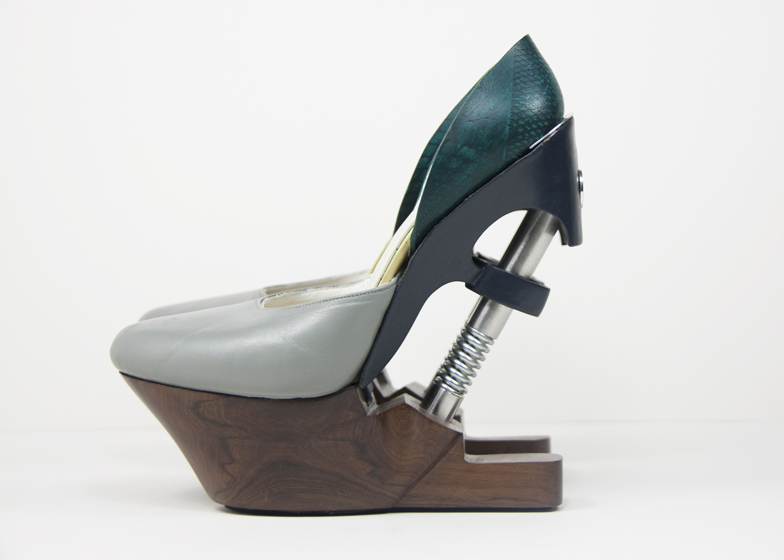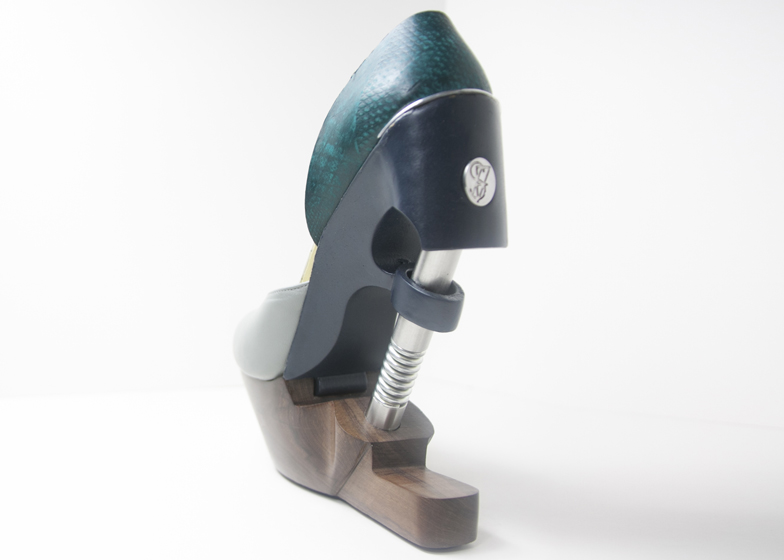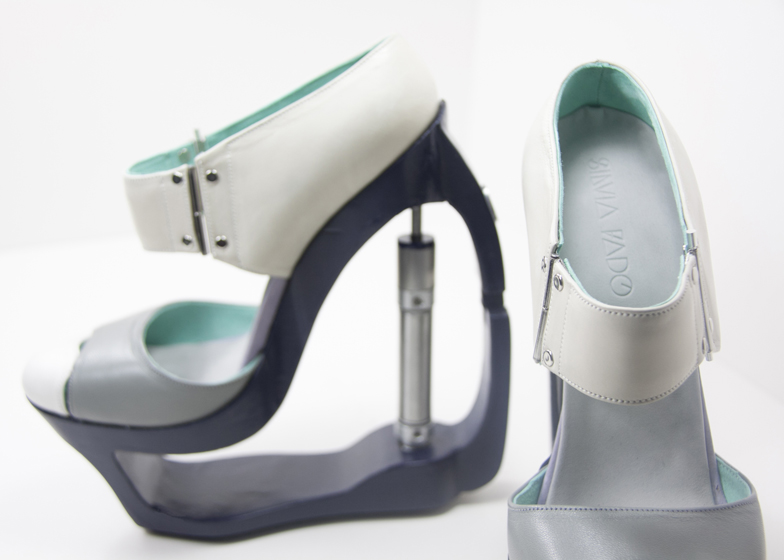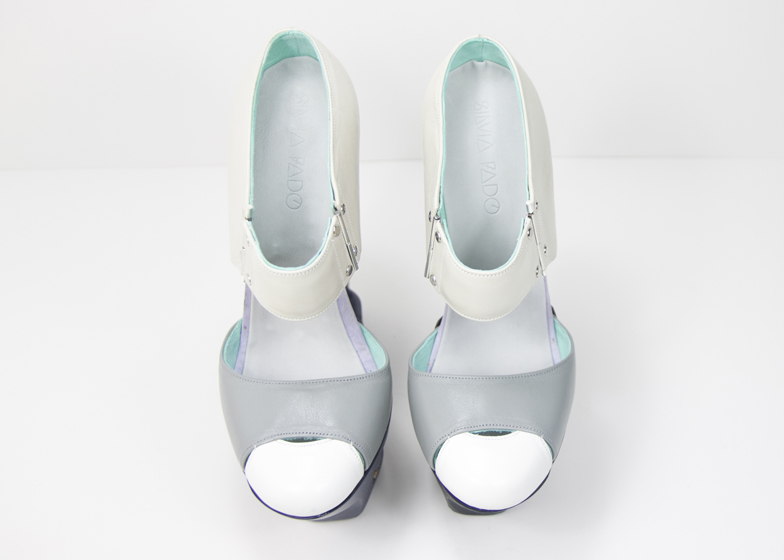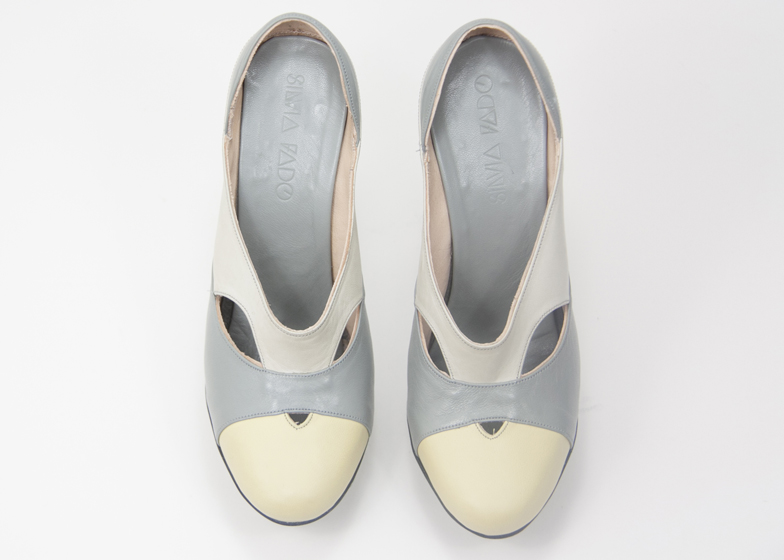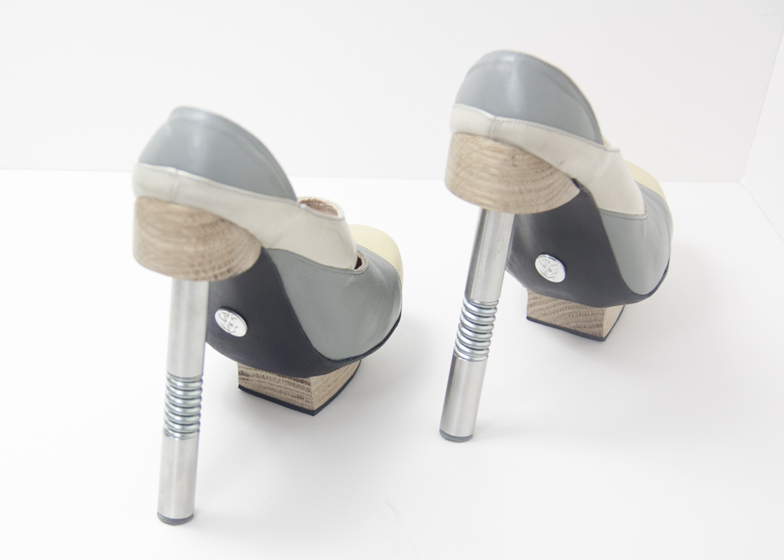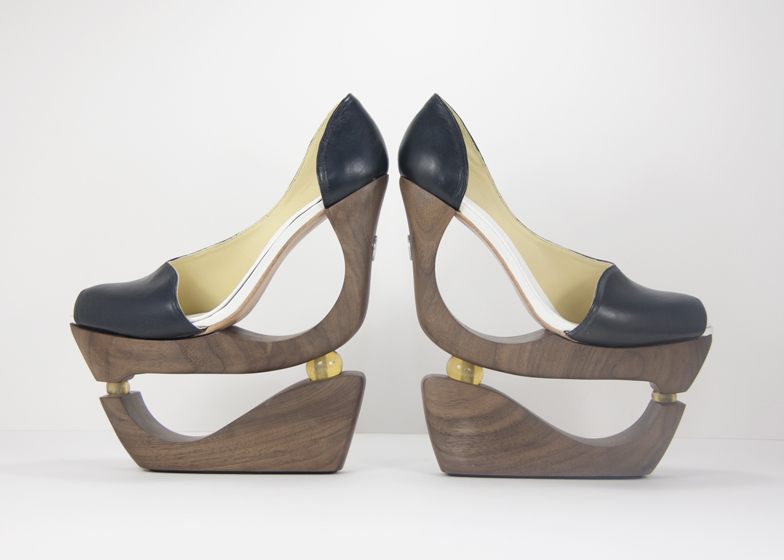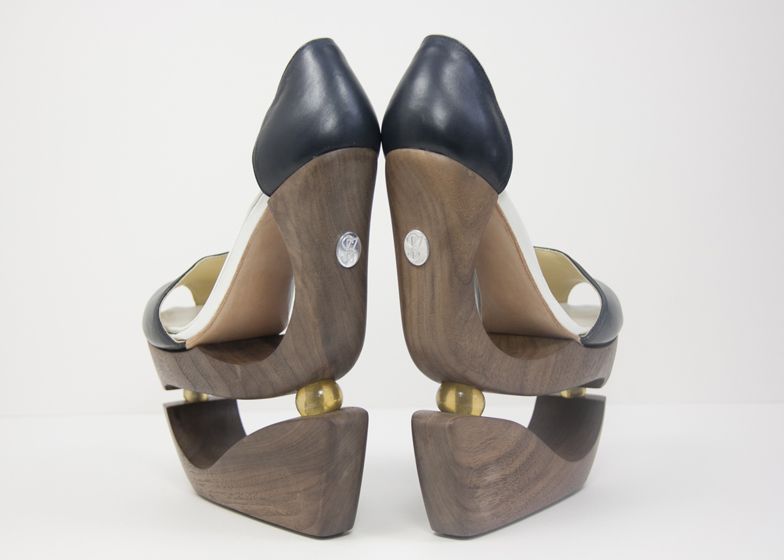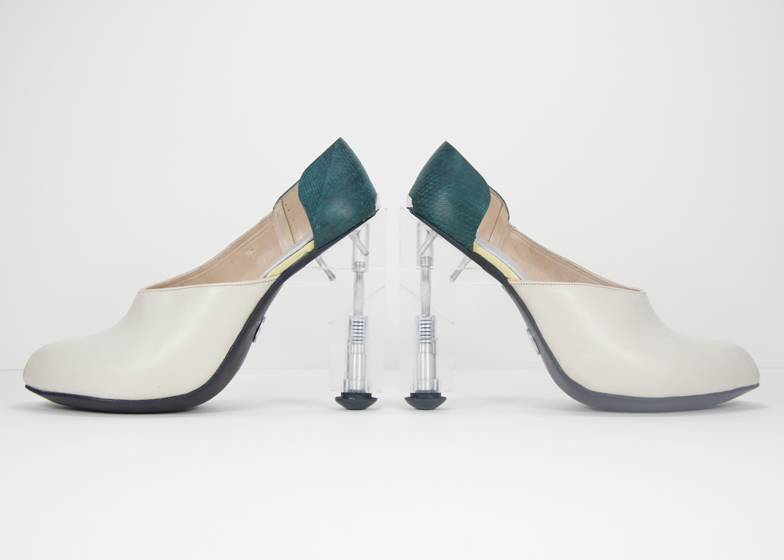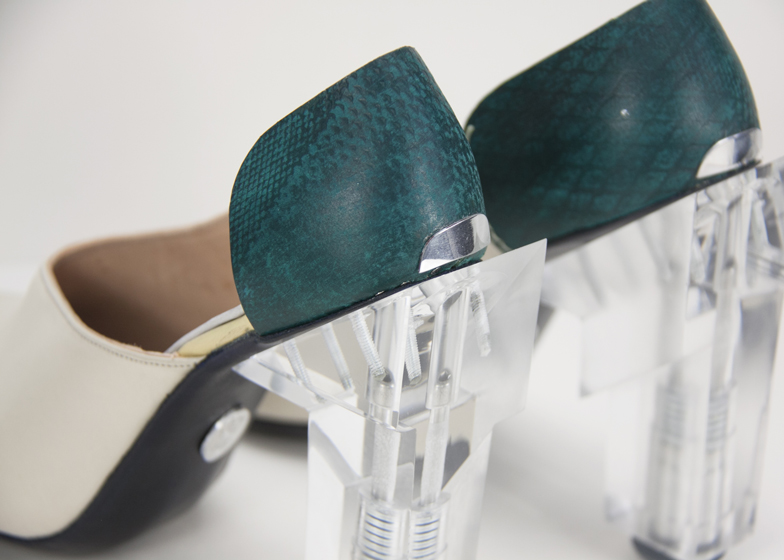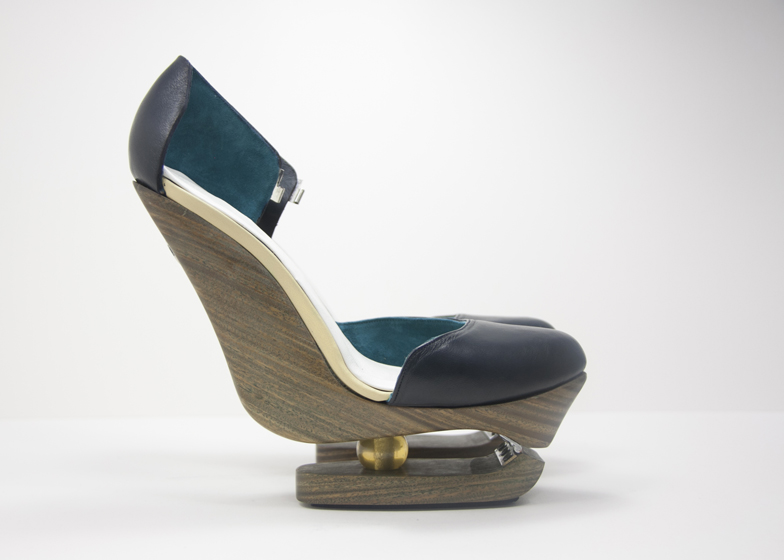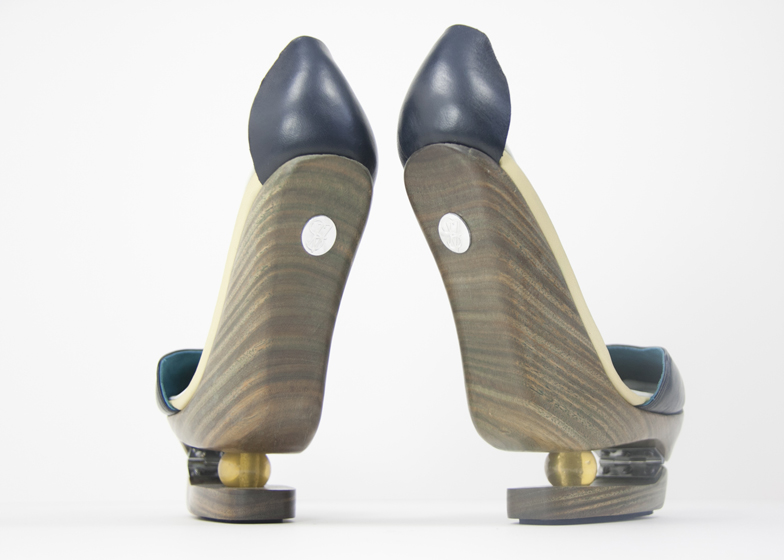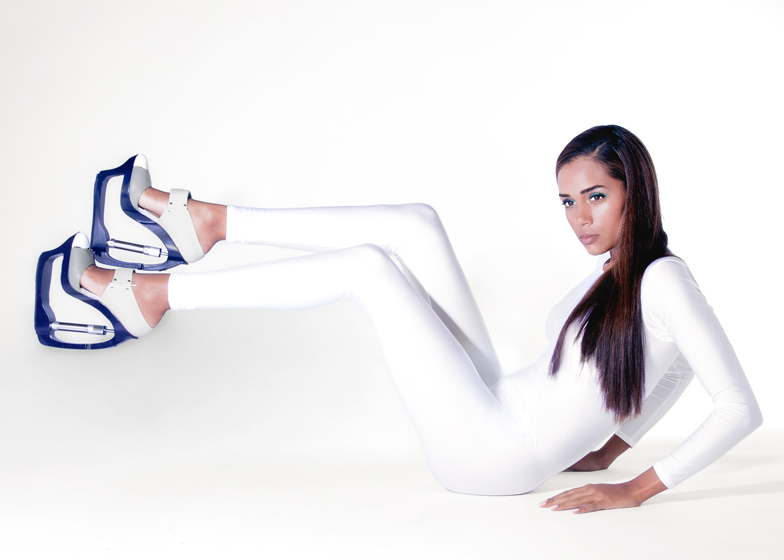Footwear designer Silvia Fado has used hydraulic pistons and rubber balls in the heels of these shoes, aiming to improve the wearability of high heels (+ slideshow).
Silvia Fado added features including springs, rubber balls, pneumatic hydraulics and metal rings to shoes in her Kinetic Traces collection to help absorb impact and make them more comfortable to wear.
"The principal functions of footwear are often sacrificed in fashion," Fado told Dezeen. "This project brings sports footwear fundamentals to high-end fashion as sports footwear are based on function and wearability, both very important elements for design features that must interact with the body and be usable by the wearer."
She integrated the mechanical elements into the heels of the shoes to dampen the walker's steps.
"I have been analysing comfort elements in footwear, and specially I studied and developed impact absorption, shoe weight, traction (the relationship between shoe and surface) and upper durability," said Fado.
Fado worked with an architect to study the forces that interacted with the structure of shoe during walking. She also collaborated with a photographer to capture, break down and analyse the different stages of movement.
Following this research, she added moving elements into the heels to create better flexibility in a range of designs.
"To realise the absorption function, I introduced an element of internal movement into these structures," said Fado.
Different-shaped heels and mechanisms absorb weight and motion in different ways.
Stainless steel springs and hydraulics are used on their own or in combination with other materials like moulded transparent acrylic plastic.
Two pairs of shoes have sculptural milled wooden heels in two parts, connected by rubber balls. One has a ball at each end, while another integrates the element at the back with a metal hinge at the front.
The woods used included African hardwoods, Colombian verawood and English walnut. More complex sections of the platforms were 3D-printed in navy blue nylon.
The leather uppers with sections in various colours were created using traditional shoe-making techniques.
Although the shoes are wearable, they have been created to represent potential solutions rather than for day to day use.
"The final outcomes are a representation of introducing mechanical concepts to traditional footwear," Fado explained.
See all our stories about shoes, including this rectangular pair by Maria Nina Vaclavek.

